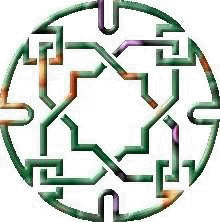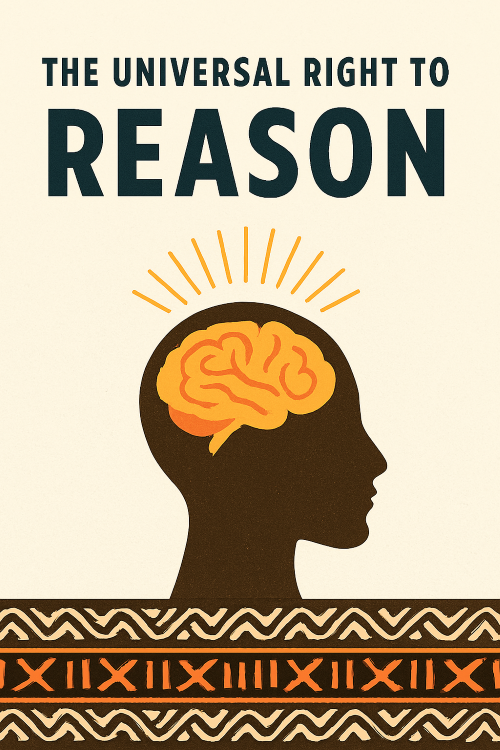

| Major World Philosophies |
| Philosophy in Major Culrures |
| World Philosophiccal Discourse |


Pascah Mungwini
The geographical metaphor of center and periphery, which philosophers apply as an analytical model to understand the relationship between western philosophy and other philosophies, is only meaningful because one of the philosophical traditions has claimed for itself a hegemonic role as the vanguard of reason. Epistemic liberation begins to manifest at the very moment we depart from the naïve canonization of western models of reality, including blind adulation and exaltation of the universalist project. Epistemic ide, that is, the systematic destruction of indigenous forms of knowledge, is a direct consequence of the ideology of universalism to which universities have served as both “the workshops and temples of the faith” (Wallerstein 1995:81). Epistemic liberation urges that such monotheistic temples be deconsecrated and opened up to allow for the worship of many gods, including the Orisas. When the Sub-Commission on African Philosophy declared that, “for the African philosopher, philosophising should never mean forcing the African reality through the mould of Western patterns,” two things are apparent. First, it is a protestation against the status quo in the form of imposed worldviews and conceptual frameworks. Second, it declares African philosophizing as an act of liberation. African philosophizing becomes coterminous with self-liberation and the critique of Eurocentrism. At the heart of African self-liberation is the critique of Eurocentrism as an integral step in the process of self-apprehension. Being a “critical (re) examination of the colonial intentions organic to Western modern philosophy” (Eze 1997a: 6), the critique of Eurocentrism aims to tackle the “pervasive bias located in modernity’s self-consciousness of itself [...] grounded at its core in the metaphysical belief or Idea that European existence is qualitatively superior to other forms of life” (Serequeberhan 1997:142).
A similar epistemic quest animates decolonial theorists and philosophers of liberation from Latin America who have sought to expose the myth of western modernity and to unmask its darker side called coloniality as a core-requisite for epistemic liberation. Rooted in this myth is the problem of the global self-constitution of modernity, which is at the center of what counts as knowledge, including even the boundaries of where to look for philosophical ideas. I feel there is no better way to capture the object of the critique of Eurocentrism for African philosophy than the title of Robert Bernasconi’s inspirational essay, “Hegel at the Court of the Ashanti.” His essay title renders vivid the object of the critique of Eurocentrism in the African philosophical enterprise. In the essay Bernasconi (1998: 41) promises to “turn the tables and put Hegel on trial [...] to take him before the court of the Ashanti, where his use of evidence [including his self-serving exclusion of what would otherwise have been counter-examples to his discussion of Africa] can be interrogated [...] to demonstrate the unhistorical nature of Hegel’s statement about Africa.” It is also true that a worrying form of scholarly forgetfulness pervades the teaching of philosophy, and it is inimical to the quest for liberation. For example, Eze (1997b: 103) pointed to the prevalence of what appears to be an “overwhelming desire to see Kant only as a ‘pure’ philosopher, preoccupied only with ‘pure’ culture-and colour-blind philosophical themes in the sanctum sanctorum of the traditions of Western philosophy.” This is despite the fact that Kant produced one of the most damaging theories on raciology of the eighteenth century. With regards to the teaching of philosophy, this kind of forgetfulness or willful amnesia not only fails to prepare students to engage meaningfully with problems of the contemporary world, but it helps to sustain the myth of a benevolent ahistorical universal philosophy.
By refusing to locate philosophy “in the fabric of historicity,” that is, in the political exigencies and socio-intellectual contexts that shaped it, such willful forgetfulness or amnesia conceals truth and perpetuates ignorance. Point number one above raises concerns regarding the imposition of a foreign worldview and conceptual framework. The objective is to reclaim the right to express African philosophical ideas using categories of reflection and conceptual frameworks deriving from African cultures. It is at the level of theory and ideas that Africa continues to suffer from the problem of an imposed template resulting in template scholarship. Our thinking has remained predominantly Eurocentric even though we are not ourselves Europeans. To address this malady Kwasi Wiredu (1996) advocates the need for conceptual decolonization in African philosophy. He recognizes the intellectual price that Africa continues to pay as a result of conceptual confusions and distortions caused by the implantation of a colonial conceptual idiom on the African mind. That the ultimate liberation lies in the ability to think through our philosophical issues in our own languages is an issue that is beyond dispute, and it is a point vigorously affirmed by many Africanist scholars and philosophers. The other resolution by the Sub-Commission, which states that “the African philosopher ought to base his [her] research on the fundamental certainty that the Western form of philosophy is not the only form possible,” is yet another affirmation of the African right to reason. It is as much a call to reject mimetic philo-praxis, as it is a confirmation of the existence of multiple possibilities. It points to the pluriversal nature of knowledge and understanding. This resolution underlines the critical point of departure for arguments on epistemologies of the global south that “the understanding of the world by far exceeds the Western understanding of the world” (Santos 2014: viii). The future of this world lies in the growth and promotion of “credible alternative philosophies whose complementary characteristics would make humanity richer and the philosophic enterprise itself more fascinating” (Okere 1983: 129). It is through the critique of Eurocentrism that parochial universalism can be supplanted, and out of that very process, the right for all to contribute to the production of knowledge and philosophy is asserted.
The problem has always been that the west has sought to universalize its own particulars and at times even by force. From the foregoing, it is therefore clear that epistemic liberation depends in part on our ability to reclaim the universal right to reason in terms of being able to theorize our own reality as a people, including refusal to remain fixated with the northbound gaze in the form of blind submission to a hegemonic and parochial universalism. (The Quest for Epistemic Liberation, p.72 -73).
Reference:
Pascah Mungwini. 2019. ‘The Quest for Epistemic Liberation: What Can be Done to be True to Both Philosophy and to Humanity?’, Journal of World Philosophies p.72 -77).